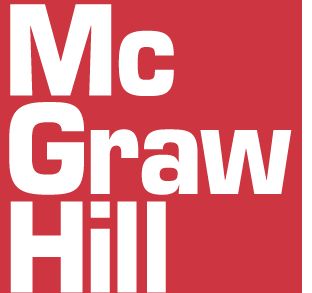 It’s only business. But that was a hard and personal lesson for many staffers at BUSINESS WEEK Magazine. It may yet become a tough lesson for the leaders of McGraw-Hill Cos.
It’s only business. But that was a hard and personal lesson for many staffers at BUSINESS WEEK Magazine. It may yet become a tough lesson for the leaders of McGraw-Hill Cos.
When McGraw-Hill, my employer of 22 years, cut BW loose by selling it to Bloomberg last year, plenty of BW folks felt betrayed. They had committed their careers to the magazine and bought the argument of leaders there that the eighty-year commitment the McGraw family had to the weekly was a forever thing. So long as a McGraw was in charge, McGraw-Hill (MHP) would never sell it, the leaders counseled.
Well, they were wrong, of course. BW, viewed at McGraw-Hill as just another money-losing Internet victim, was quickly snapped up by the business wire. And soon, despite assurances from the Bloomberg camp that the deal was more about buying talent than a big brand name, most of the 200-plus BW vets were let go. It was a harsh dose of the business world’s version of realpolitik, the kind of thing BW folks had reported on but that few of them had experienced. With its formidable global reporting force, Bloomberg just didn’t need all that pricey BW talent.
Now, pundits are vaunting the idea that McGraw-Hill could – or should – be in someone’s sights. Pearson PLC, the $9 billion-a-year British publishing company, is one of the names floated as the perfect acquirer. Textbooks, synergies, global footprint, etc. Such takeover talk, which has long dogged $6 billion-a-year McGraw-Hill, seems as rational and predictable as Bloomberg’s interest in BW. The 101-year-old MHP has been struggling lately with single-digit declines in both net income (down 8.6% last year) and revenue (down 6.3%).
It is perhaps sad, but former BW folks are likely salivating at the prospect of MHP’s demise as an independent company. Turnabout is fair play, as the British say. Even more than that, however, many BW vets have stock options that have been underwater for a few years now [full disclosure: as former chief of correspondents for the magazine, I’m among them. I took a modest number of options with me when I left last year before Bloomberg appeared on the scene]. MHP’s shares traded as high as $72 in mid-2007. They now struggle around $30, after dipping below $24 last fall. In purely stock-market terms, the company seems like a flatliner whose glory days are long behind it.
McGraw-Hill’s challenges loom as high as BW’s once did (and still do). Uncertain prospects cloud the future for MHP’s once high-flying Standard & Poor’s ratings machine, given the vagaries of government regulation, general litigiousness and the tarring the ratings agencies have taken in the recent recession. The recently passed financial reform could cut its margins and expose it to more lawsuits, as S&P president Deven Sharma himself has recently warned (and S&P also warned about rival Moody’s in cutting the rating on the other rating agency giant, a peculiar irony). Prospects are also questionable for MHP’s storied textbook operation, given hard-pressed state education budgets and the march of the Net in the text realm. Flat stock prices? Who should be surprised?
The big question, of course, is whether Pearson or someone else would see as much value in McGraw-Hill as Bloomberg did in BW. The jury is out on whether Bloomberg’s move was a smart one – so far, its main value seem to be putting the Bloomberg name regularly in front of 4.5 million sets of eyeballs at a bargain price. Pearson could likely eliminate a lot of duplication by folding MHP’s textbook operation into its line. As for S&P, that odd beast could be of use to Pearson (which owns the Financial Times along with the world’s biggest textbook publishing operation) or, perhaps, to a Reuters or other financial information service. Certainly, rating agencies are needed and, even without the crazy-days growth of the past and the threat of a litigious future, S&P seems valuable. Slicing and dicing MHP among a few acquirers might make sense.
The atmosphere also seems right. Conditions are much different than 1979, when then-CEO Harold McGraw Jr. repelled a takeover bid by American Express. The popular CEO could rally his family and other loyalists and beat back the challenge. Given the recent anemic stock performance and dubious prospects at the company, current CEO Harold W. (Terry) McGraw III, son of the now-deceased Harold, might find fewer sentimental supporters nowadays. What’s more, the current CEO might do his family and friends a huge favor by putting his company into a global powerhouse that can do something with is still-valuable assets.
Business has precious little room for sentiment, of course. McGraw-Hill taught that lesson to former BW lifers in painful fashion. If a smart acquirer could do more with the bits and pieces of McGraw-Hill, so be it. Certainly, that would be a better fate than watching the company wither into irrelevance. And for stockholders, the premium should at least take the price close to its long-gone high. A deal might be the business world’s version of justice.
